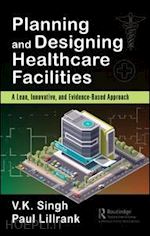Dr. Vijai K. Singh retired as Surgeon Rear Admiral after 37 years in national and international assignments. He earned MBBS, Masters in Hospital Administration, Diplomate National Board in Hospital and Health Care Management, and M Phil. He was awarded a Distinguished Services Medal for services in Zambia by the President of India and commendation by Zambia. He had been deputy chief medical officer of the United Nations, adjunct professor of the Massachusetts Institute of Technology (MIT), Zaragoza, Spain, and consultant to the National Disaster Management Authority. He was president of the Academy of Hospital Administration, founder director of the International Institute of Health Management Research, chairman of the Health Care Division of Quality Council of India, and member of the International Group on Biosafety. He developed a European Foundation for Quality Management (EFQM) model for Healthcare in India released by Union Health Minister. Presently, he is Adjunct Research Professor at the International Health Innovation Center, Ivey School of Business, Canada, and Director of Healthcare Asia for Lean Healthcare Excellence-Simpler. He is a member of the National Public Health Committee of Confederation of Indian Industry (CII) and visiting professor of the Indian Institute of Management, Management Development Institute, and Public Health Foundation of India. Paul Lillrank has been a professor of quality and service management at Aalto University since 1994. He earned his PhD from Helsinki University in 1988 after postgraduate studies in Japan, where he studied quality management in Japanese industry. He has worked at Science University of Tokyo, the Boston Consulting Group, and Stockholm School of Economics. He has pioneered industrial management applications in health care and cofounded the Institute of Healthcare Engineering, Management and Architecture (HEMA) at Aalto, Finland, and the Nordic Healthcare Group (NHG), a consultancy. He has published in the areas of health-care operations management, technology transfer, service quality, and process analysis. He teaches regularly at the Indian Institute of Technology, Kharagpur.











